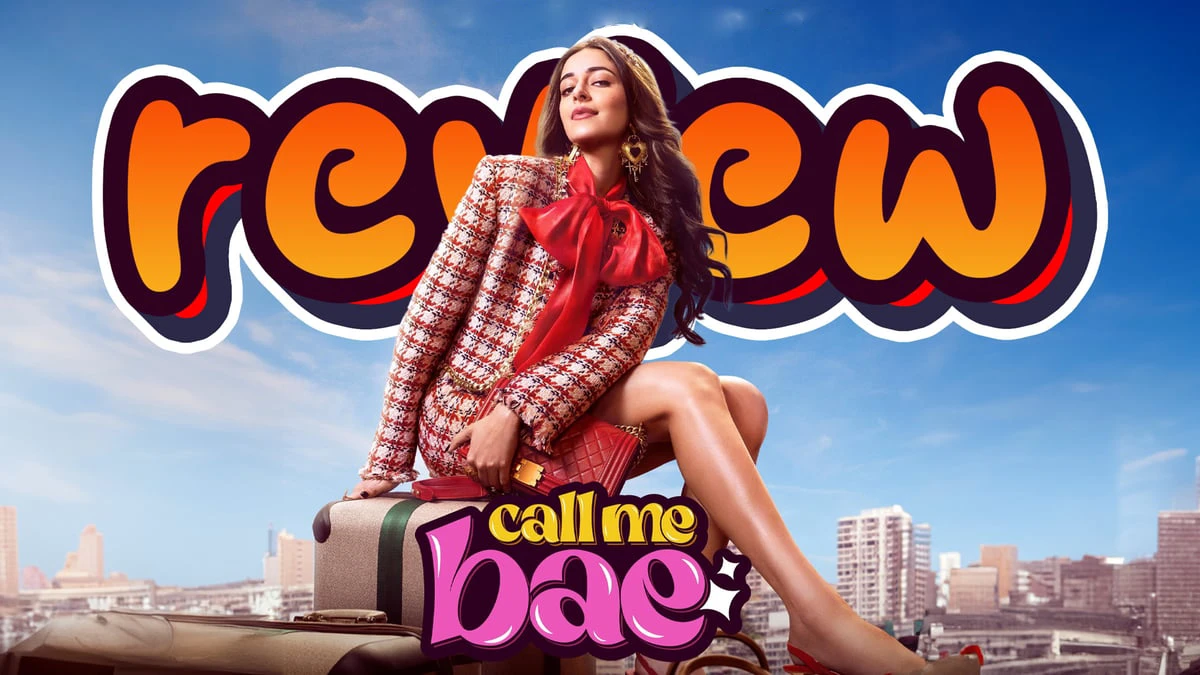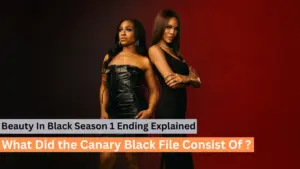In the first episode of Call Me Bae (2024), Gayatri Rajvansh (Mini Mathur) sets the tone with a metaphor for her daughter Bae (Ananya Panday), urging her to be like a Birkin bag—irreplaceable, not original, in a world full of fakes. Much like Gayatri’s words, this Dharmatic Entertainment production seems to revel in exploring privilege and entitlement instead of condemning them. Directed by Colin D’Cunha, Call Me Bae feels like an invitation to roll your eyes, and yet, it might still make you smile.
Table of Contents
Call Me Bae Plot

Bae, a privileged socialite from South Delhi, is the quintessential rich girl born with a golden spoon in her mouth. She glides through life with an attitude to ‘eat, love, and pray’ until her seemingly perfect world crashes down. Three years into her marriage, Bae gets caught cheating on her husband with her gym trainer.
The scandal sends shockwaves through her life—her husband Aggy (Agyasta Chowdhary, played by Vihaan Samat) isn’t devastated but rather scandalized. In a swift move, her family throws her out of their mansion, and her friends sever ties, even booting her from their social media groups.
As Bae faces her new reality, her estranged husband and family, led by Samar (Shiv Masand), extend a lifeline. They offer her a house, car, servant, and a hefty bank balance, with just one condition: stay out of sight until the scandal blows over. In a surprising twist, Bae rejects the offer, opting instead to make a fresh start in Mumbai—the city of dreams.
A New Beginning or Just Another Privileged Adventure?
One might expect Bae’s journey in Mumbai to be a sobering tale of struggle and self-discovery, akin to a modern-day, girl-coded Wake Up Sid. However, Bae’s luck takes an unexpected turn. A drunken rant makes her an internet sensation, leading to a paid internship, admirers galore, a flatmate, and an exclusive story to chase. This unrealistic streak of good fortune might make viewers roll their eyes, but it keeps the story moving.
Even with a dose of suspended disbelief, the stakes in Bae’s life feel remarkably low. Her “struggles” involve privilege flashbacks, reminiscing about shoplifting as a cry for help, and speech filled with puns that feel more forced than fun. The show seems more focused on flaunting Ananya Panday’s impeccable wardrobe and an array of luxury brands than addressing any real issues, leaving you more exhausted than entertained.
Ananya Panday Shines, But Her Character Doesn’t
Ananya Panday is undoubtedly fabulous in her role as Bae. She embodies the character with a surprising level of comfort and authenticity, almost as if she’s merely playing herself. Bae is selectively intelligent, unable to utter the word “poor” as if it’s a sin, and sheds more tears over lost designer handbags than lost relationships. She strolls into corporate meetings with the same panache as Poo from Kabhi Khushi Kabhie Gham—all flair, no substance.
Panday’s portrayal manages to hide the superficiality of the character with a layer of genuine emotion. However, the female characters surrounding her are reduced to sanitized stereotypes of Instagram-obsessed, Pinterest-perfect young women in their early 20s. Enter Vir Das as Satyajit Sen, the quintessential TRP-hungry, misogynistic bad guy who inadvertently makes Bae appear more demure and mindful. But with all the glitter that surrounds her, it’s hard for Bae’s true nature to shine through.
Writing That Fizzles Out After A Promising Start
After the initial few episodes that serve as a lengthy exposition, the writing by Ishita Moitra, Sania Motlekar, and Rohit Nair starts to falter. The script often feels like sipping soda on an empty stomach—frothy, with little to fill you up. The show tries to tackle heavy themes like the superficiality of social media, the contrast between online personas and real life, and the judgment that comes with being in the public eye. However, it lacks the depth or nuance to do justice to these themes.
Despite its flaws, Call Me Bae shows some self-awareness. A wedding sequence hilariously mimics Siddarth Malhotra and Kiara Advani’s real-life wedding video, capturing the show’s essence as an unserious take on a very real world. While some might find this parody uncomfortable or even offensive, it provides a moment of levity that helps viewers embrace the show’s quirky universe.
Call Me Bae Ending Explained
Final Verdict
Call Me Bae (2024) is a frothy, fun ride that makes for a good weekend binge with friends. Just be prepared to roll your eyes at the exaggerated caricatures and the frivolity of it all. While the show may blow certain aspects out of proportion, it offers a refreshing break from the typical OTT crime thrillers fighting for viewership. So, grab some popcorn, settle in, and enjoy the drama—but don’t expect to find any profound insights beneath the surface bling.









